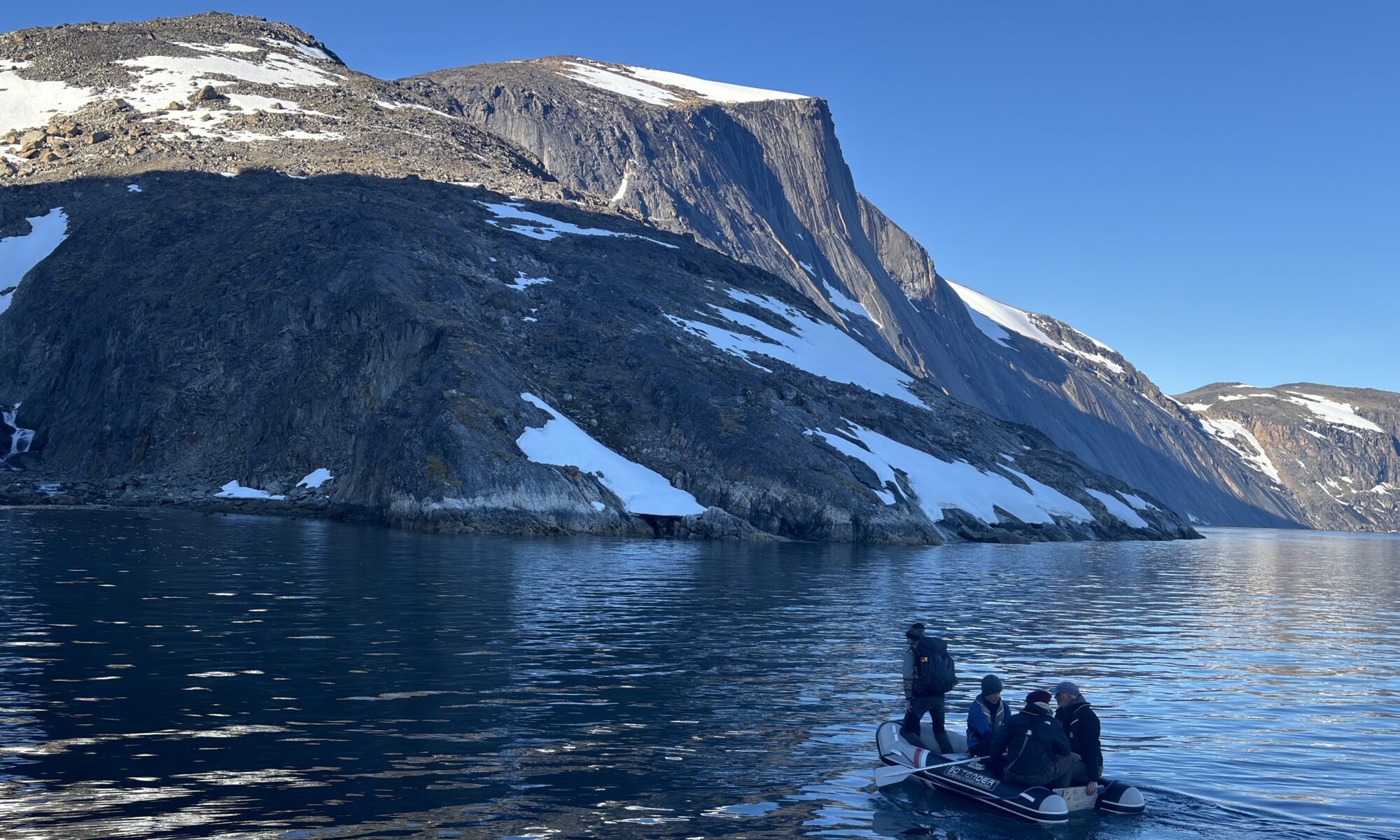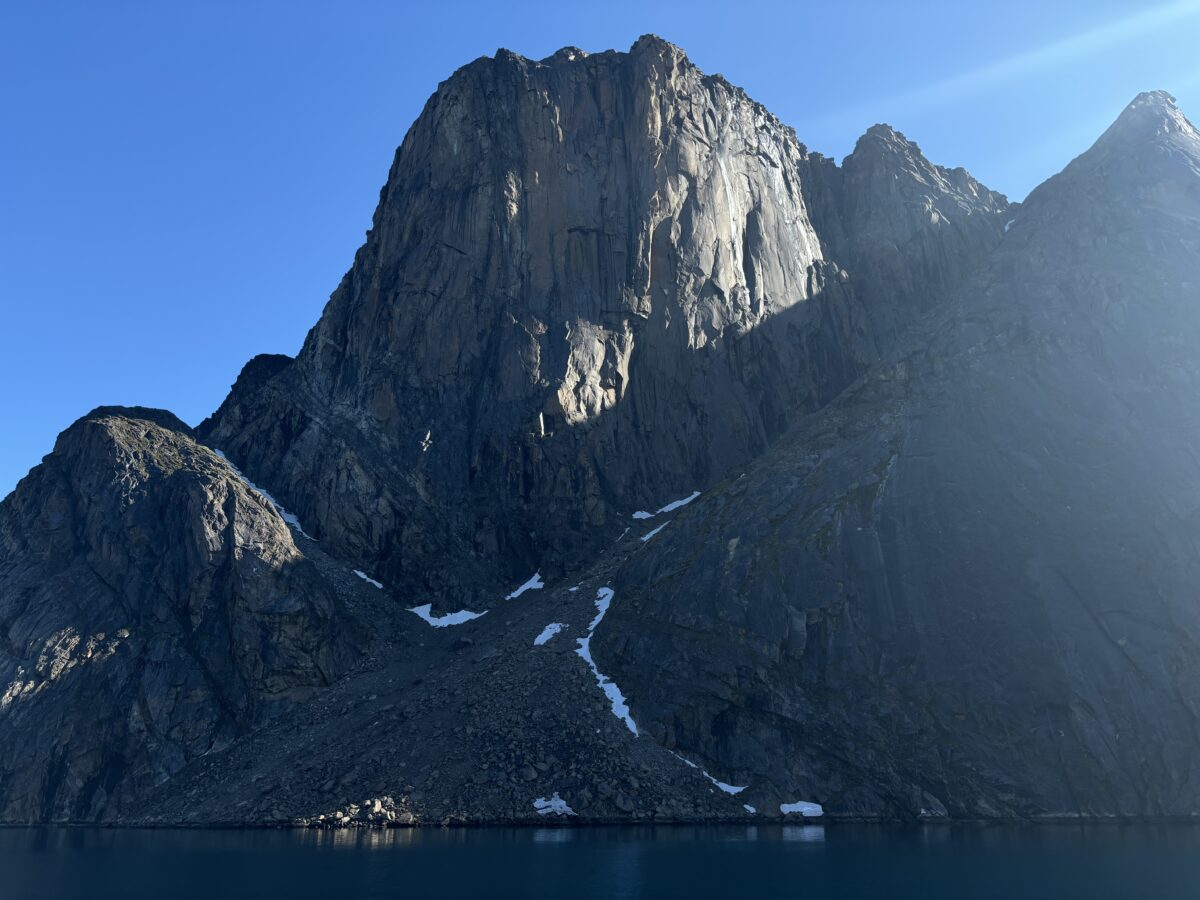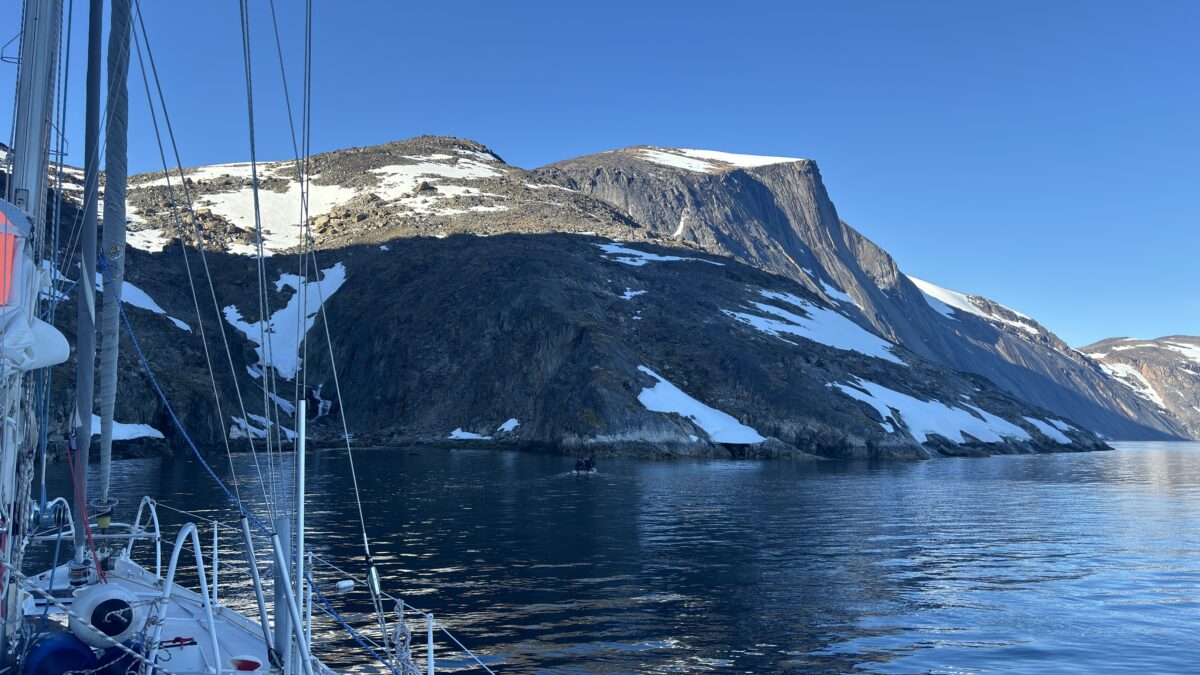High Mountains, Cold Seas

As a climber of Mount Everest, I have enormous respect for the pioneers of our adventuring life. Men like George Mallory and my uncle, Howard Somervell , who were on the very first climb of Everest and who suffered all the difficulties and dangers of being the first.
On that climb in 1922 one man slipped and they all started to slide down the North Face. Only Mallory´s quick thinking and a stab with his ice axe saved them all from certain death.
So it was with other pioneers. Christopher Columbus was dismissed on his third voyage and sent home in chains. Captain Scott died on the way back from the South Pole. Mallory died mysteriously on Everest in 1924. And Franklin disappeared with hundreds of men and his ships “Erebus” and “Terror” somewhere in the Northwest Passage in the 1800s.
Here in the Davis Strait off the coast of West Greenland we remember John Davis, who was the first Westerner to sail in this sea, searching for that elusive Northwest Passage in 1585.
The British wanted to find a route to the riches of China and the Spice Islands without having to sail past the Spanish possessions of South America and risk the terrible Cape Horn. Little did they know that they would waste the efforts of dozens of failed expeditions, the lives of hundreds of sailors and millions of pounds in their futile endeavor. Because the Northwest Passage is still unusable as a realistic route to the Pacific: indeed this week it is still blocked by ice to the sailing yachts we met hoping to make the passage.
John Davis sailed his 50-ton ship “Mooneshine” in these waters and I am filled with admiration. As leisure sailors we attempt to follow in his wake, and, as Belloc wrote:
“In venturing in sail upon strange coasts we are seeking those first experiences, and trying to feel as felt the earlier man in a happier time, to see the world as they saw it.”
This west coast of Greenland from Cape Farewell to Cape York (about as far as a small sailing boat can go) is 900 miles long, fronted with uninhabited islands, indented with long, fascinating fjords bordered by high, snowy mountains and terminated by glaciers leading to the ice cap of the interior.
John Davis made landfall in Greenland in 1585 at what is now the capital of Nuuk, somehow finding the intricate and sheltered harbor among the surrounding mountains. He called this place Gilbert Sound, and it has gone through a few names since, including Gothaab Fjord.
On his third and last voyage here in 1587 John Davis reached a huge black cliff south of Upernavik, where I joined Anuk on 15 July this year. This he named “Sanderson´s Hope” after William Sanderson, a rich London merchant and patron of all three of his voyages of exploration.
Davis had three ships in 1587: “Sunshine”, which had been on the two earlier voyages, and “Elizabeth”, both of around 50 tons, and “Ellen”, a little clinker-built pinnace of just 20 tons: about the size of our “Anuk”.
At Nuuk, “Ellen” was found to be leaking badly, and John Davis took the characteristically brave decision to send the two larger ships off to the rich Newfoundland Banks to fish for cod and make some money for Sanderson. He himself took little leaking “Ellen” as far north as he dared, reaching this 400-metre cliff and naming it:
“Sanderson, his Hope of a North-West Passage”, writing in his log: “No ice toward the north but a great sea, free, large, very salt and blue, and of an unsearchable depth.”
Sanderson´s Hope proved to be as far north as John Davis got. A northerly gale prevented “Ellen” from any further progress in that direction, and when they sailed west they encountered the ice of the “middle pack” which forced them to turn south.

I followed Bill Tilman, my climbing and sailing hero to Mount Everest (he led the 1938 Everest Expedition), and I also followed him here in 2017 (he sailed in his Bristol Pilot Cutter “Mischief” here in 1964).
Like many of the great pioneers, Tilman died on an expedition. He was in his late 70´s, sailing in the Southern Ocean when he disappeared somewhere near the Falkland Islands.
I only hope that we admirers of the great pioneers do not also emulate their cold, lonely deaths on the high mountains and in the cold seas.
Text: Graham
